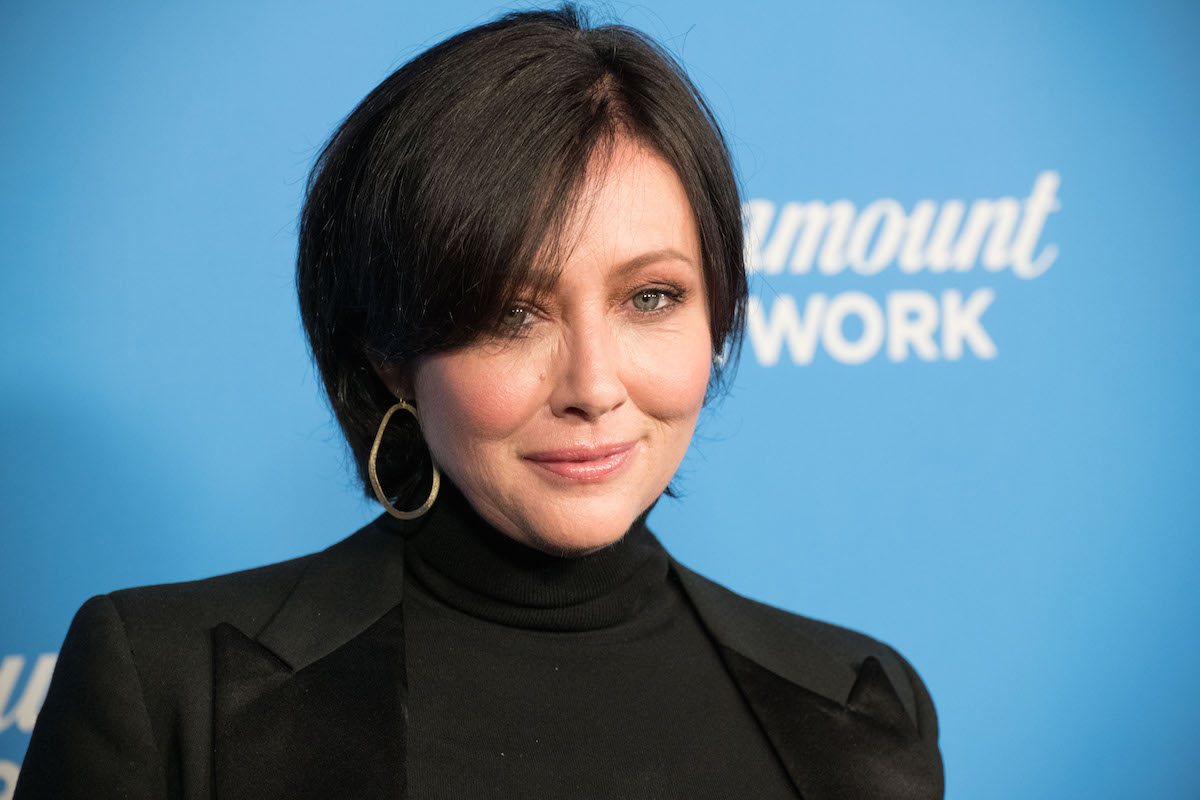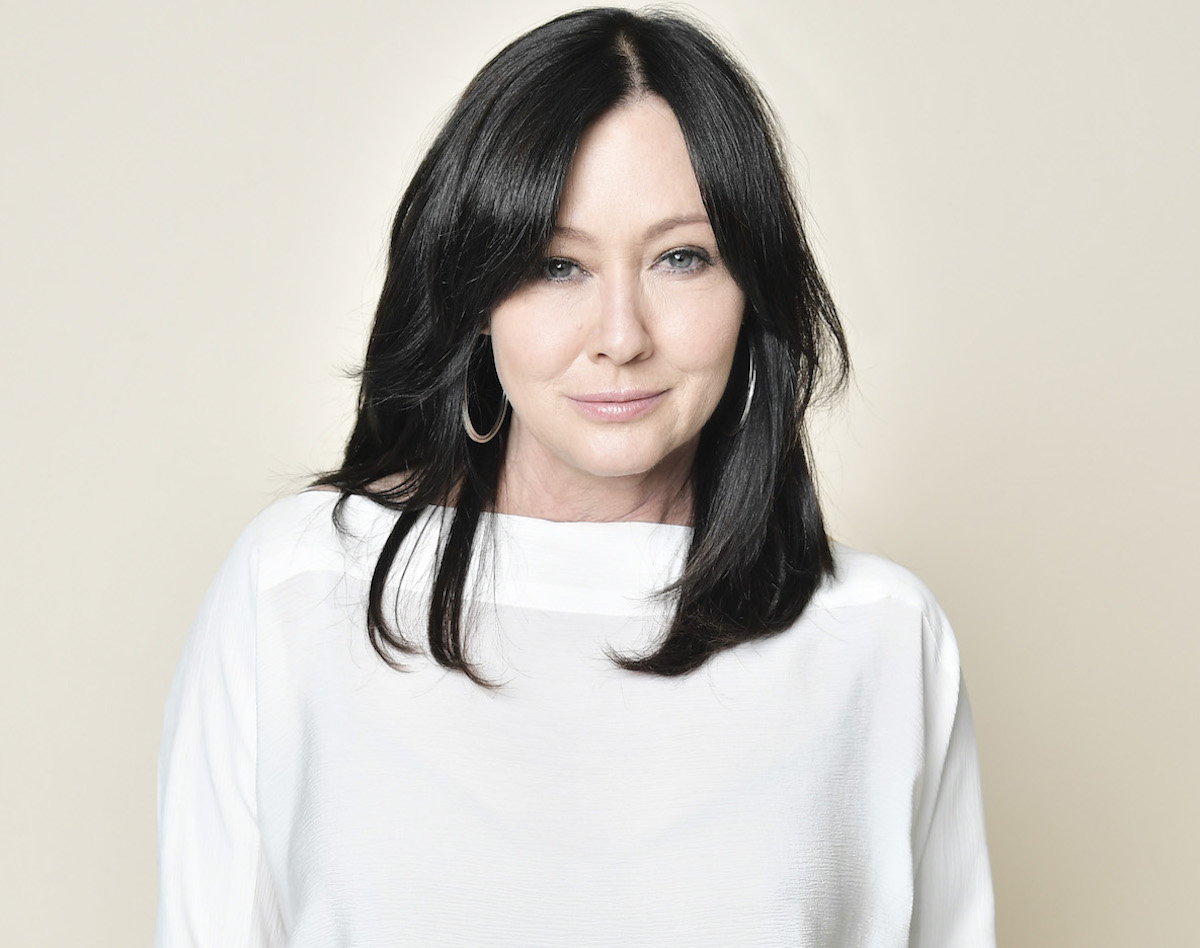Learning How To Cope With Advanced Cancer
- Shannen Doherty, 52, said she has felt fearful after learning that her stage 4 breast cancer has spread to her brain. She has received radiation and also has a tumor removed from her head.
- Doherty’s openness in describing how she felt in these recent months shows just how intense and overwhelming a cancer journey can be for survivors – and the incredible emotions that can be felt.
- “People have a range of emotions when they're diagnosed with cancer,” psychiatrist Dr. Lori Plutchik tells SurvivorNet. “And they can include fear, anger … and these emotions tend to be fluid.
- To help cope, it’s important to for support whether that's a therapist, friends and family, or both.
- New York-based clinical psychologist Dr. Marianna Strongin also recommends using music, movement, and meditation to help calm your body when you are feeling intense emotions.
After revealing that her stage 4 breast cancer had spread to her brain, the resilient 52-year-old actress said that she also had a tumor removed from her head and expressed the intense fear she had during this new stage of her cancer journey.
Read More
She captioned the post, which was shared on Instagram on Wednesday, “I had a tumor in my head they wanted to remove and also biopsy. I am clearly trying to be brave but I am petrified.
RELATED: Pulling for Shannen Doherty: What Is a Person's Outlook After Cancer Spreads to the Brain?
“The fear was overwhelming to me. Scared of all possible bad outcomes, worried about leaving my mom and how that would impact her,” she explained.
“Worried that I would come out of surgery not me anymore. This is what cancer can look like.”

The video showed Doherty in a hospital bed answering questions about how her hands and feet felt prior to surgery.
After telling a woman how her limbs were feeling fine or if she had weakness in the legs, she was advised of what could happen after surgery.
“Well, sometimes after surgery things can get a little irritated, just from the blood and surgery and pushing on the nearby areas. So I don’t want you to be too alarmed,” the person in the video said.
Expert Metastatic Breast Cancer Information
- Do You Have HER2-Positive Metastatic Breast Cancer? Here’s A Breakdown Of Some Of Your Treatment Options
- How To Treat Metastatic Breast Cancer: The Drug Trodelvy Shows A Promising Boost In Survival Rates
- Chemo Plus Immunotherapy for Metastatic Triple-Negative Breast Cancer
- PARP Inhibitors Provide New Promise for Certain Metastatic Breast Cancers
- Understanding Gene Mutations in Your Metastatic Breast Cancer Diagnosis Is Crucial to Your Treatment
Doherty’s post was praised by fans, with one writing, “This is absolutely amazing. I’m so glad you decided to put this out there. Everyone always says we are fighters and to a point that’s true but really what choice do we have. We have to do what we have to do. You are a true inspiration for showing the real bulls*%t that goes with cancer. It’s not all pink ribbons and fundraising walks. Thank you!!!!!!!”
“Thanks for being transparent,” another fan wrote. “I'm your age with lung cancer (non-smoker). Helps to see others have the same struggles.”
Doherty, also known for her role in “Heathers,” has been open about her feelings that come along with her diagnosis since she first shared her stage 4 cancer news in 2020 during an interview with “Good Morning America.”
“I definitely have days where I say why me,” she said. “And then I go, well, why not me? Who else? Who else besides me deserves this? None of us do.”
More recently, Doherty shared a video of her being fitted for a mask, which is used when a person receives radiation to the brain, head, or neck area.
She captioned the post, “January 12, 2023. On January 5th, my ct scan showed Mets in my brain. Yesterday’s video was showing the process of getting fitted for the mask which you wear during radiation to your brain.
“January 12, the first round of radiation took place. My fear is obvious. I am extremely claustrophobic and there was a lot going on in my life. I am fortunate as I have great doctors like Dr Amin Mirahdi and the amazing techs at cedar sinai. But that fear…. The turmoil….. the timing of it all…. This is what cancer can look like.”
Managing Emotions After a Cancer Diagnosis
Shannen Doherty’s openness in describing the fear she felt in these recent months shows just how intense and overwhelming a cancer journey can be for survivors – and the incredible emotions that can be felt.
Licensed clinical social worker Sarah Stapleton previously told SurvivorNet that you should be “patient with your emotions” and communicate what you need from those around you as you process the news.
A Social Worker's Insights Into Handling a Cancer Diagnosis
“The way people respond is very variable,” New York-based psychiatrist Dr. Lori Plutchik said in an earlier interview. “Very much consistent with how they respond to stresses and challenges in their life in general.”
Plutchik stresses that your emotions, like the ones Doherty is dealing with, are valid during this journey.
“People have a range of emotions when they're diagnosed with cancer,” Dr. Plutchik explained. “And they can include fear, anger … and these emotions tend to be fluid.
“They can recede and return based on where someone is in the process. Going through a cancer diagnosis is just the beginning of a complicated, complicated process.”
MORE: Fear, Anger, Anxiety You're Entitled To Your Emotions
Dr. Plutchik also explained that the patient and their family members should accept that they may feel fine one day and then feel a massive wave of stress the next.
It's also important for those you look to for support whether that's a therapist, friends and family, or both to understand the fluidity of stress-related emotions.
If a stressful event is affecting how you think and feel, it may be helpful to look for some type of mental health treatment. Help can be received through traditional talk therapy, medication, changing lifestyle habits (like exercise and diet), seeking out a support group, or many other approaches.
And when it comes to anxiety, it's “the worry about a future event and also the underestimation of our ability to cope,” clinical psychologist Dr. Marianna Strongin told SurvivorNet.
A person doesn't know what will happen in the future (like with their health, family or money), and furthermore, they're not sure they can handle that unknown.
How to Manage Anxiety in High-Stress Times
According to Dr. Strongin, not only do cancer patients experience anxiety during treatments, but “45% of cancer survivors experience anxiety even after they've survived.”
This is not surprising, because, as she explains, “their body has gotten used to having a lot of questions about the outcome of their treatments or of their health.”
MORE: I Have Breast Cancer: Is A Clinical Trial Right For Me?
Dr. Strongn recommends music, movement, and meditation as ways to calm the body. And it's so important for survivors to know that there are coping mechanisms that can help them as they encounter various triggers through their cancer journey.
SN & You Presents Mental Health: Coping With Emotions
Living With Metastatic Breast Cancer
While we are unsure of the exact type of breast cancer Doherty is battling, we do know it's in stage 4. Metastatic breast cancer occurs when cancer cells spread from the breast to other parts of the body, such as the bones, liver, lungs, or brain.
While stage 4 breast cancer is not curable, several treatment options exist to help improve the quality of life for women battling the disease.
What are the Treatment Options for Late-Stage Breast Cancer?
“I have so many patients who are living with their cancer,” medical oncologist Dr. Elizabeth Comen told SurvivorNet in an earlier interview.
You Are Not a Statistic
It’s important to stay positive during any battle with cancer, specifically, advanced-stage cancer. You should also remember that you are not a statistic.
Kelly Shanahan has metastatic breast cancer and is a doctor, so although she has heard all of the stats, she doesn't live by those numbers.
Metastatic Breast Cancer: You Are Not a Statistic
“One thing that I am grateful for my original oncologist is when I walked into the room with him and I sat down, he looked me straight in the eyes. And he said, ‘Kelly, I know you know the statistics. You are not a statistic,” Shanahan previously told SurvivorNet.
“I might live two months, I might live 25 years. And I'm going for that 25 years.”
Shanahan explained that statistics apply to large populations, not individuals, adding, “I know that this is a terminal disease, but somebody has to be the exceptional responder.
“Somebody has to be the person that exceeds those expectations, and I hope that that will be me,” she explained.
“My greatest hope lies with research because I know that the only thing that is going to save my life and the life of my fellow sisters and brothers with metastatic breast cancer is research.”
Management of Metastatic Breast Cancer
Contributing: SurvivorNet Staff
Learn more about SurvivorNet's rigorous medical review process.

